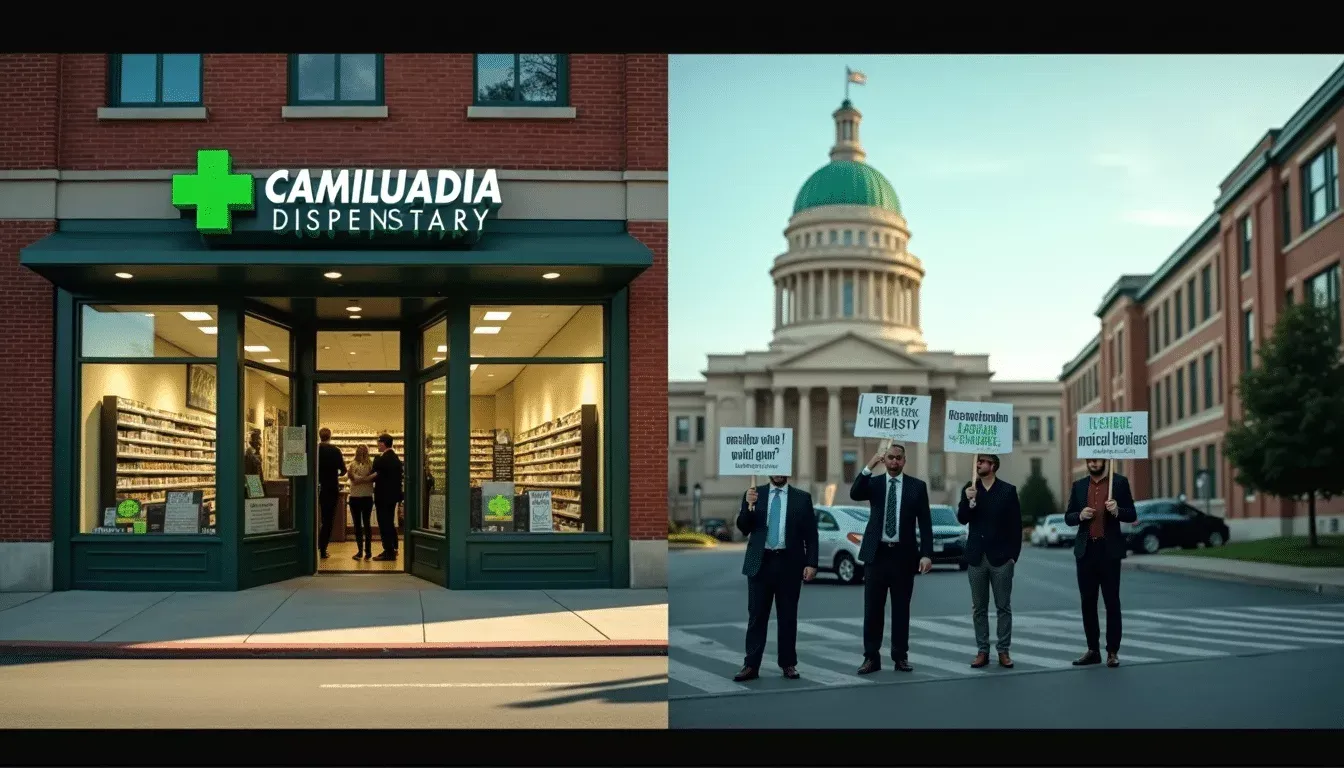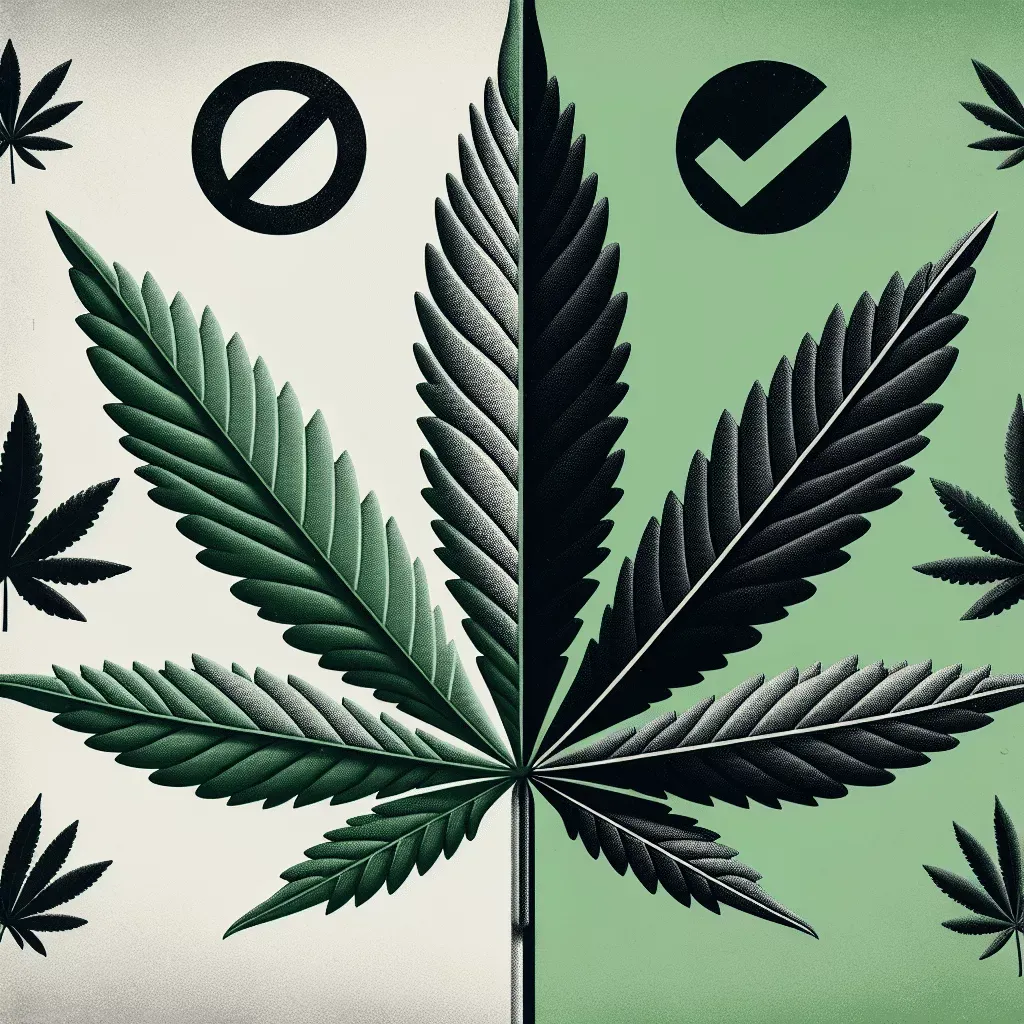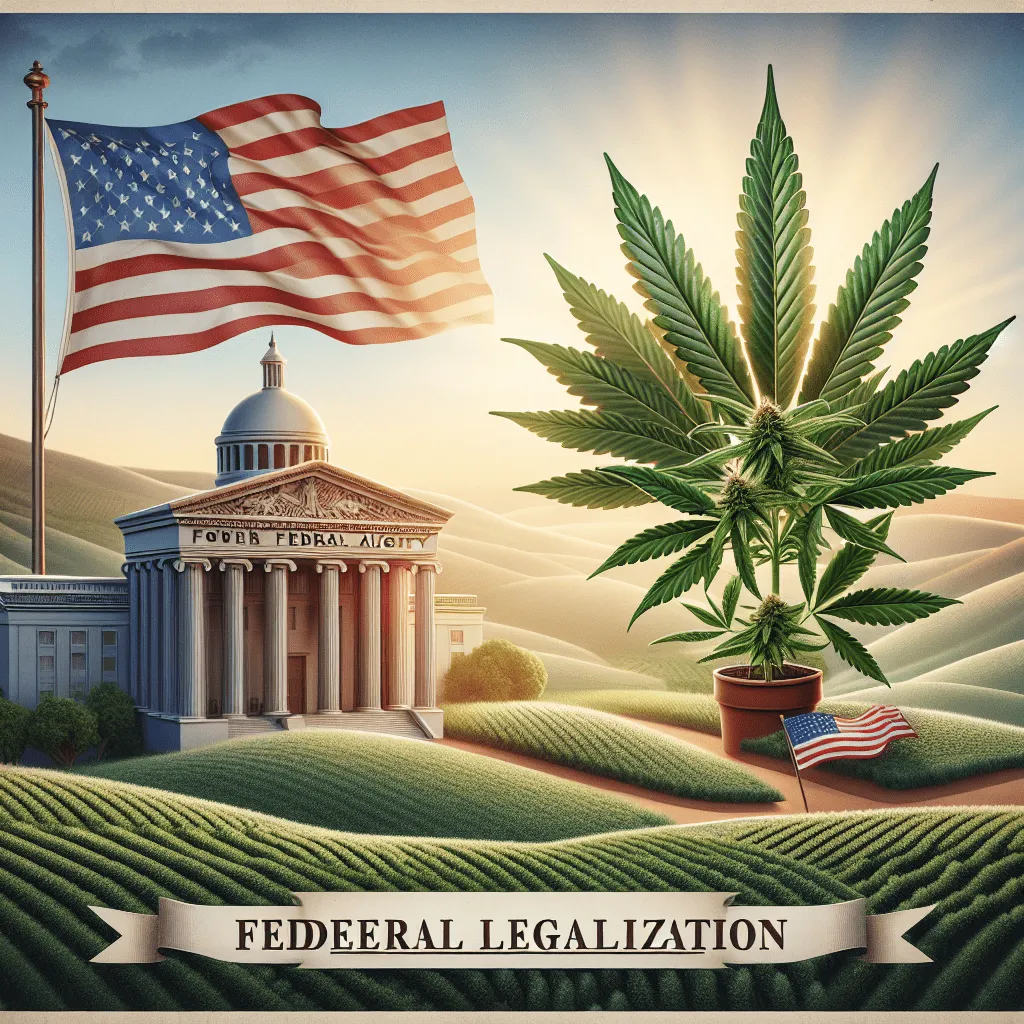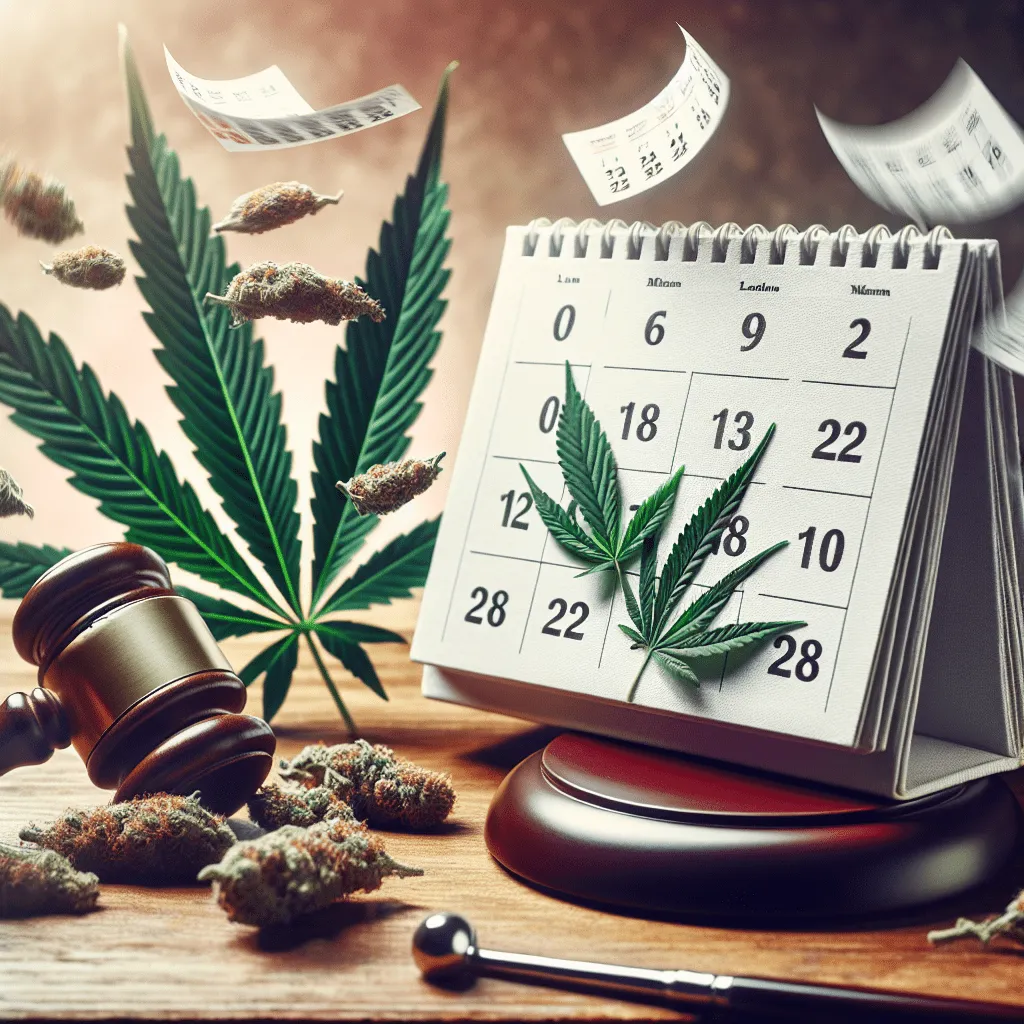Is Marijuanas Legalized in PA? Latest 2025 Updates You Need to Know
Is Marijuanas Legalized in PA? Right now, 60% of customers at neighboring states’ cannabis shops are Pennsylvania residents. This shows our state’s huge untapped market potential.
PA became the 24th state to approve medical cannabis in April 2016. Medical marijuana has been legal since then, but recreational use isn’t allowed yet. Governor Josh Shapiro’s administration wants to change this in 2025. They expect $1.3 billion in new tax revenue over five years.
Let’s get into PA’s current marijuana laws and see how they stack up against neighboring states. We’ll also look at the chances of recreational legalization in 2025. This piece covers everything you need to know – from medical marijuana qualifications to specific city policies. You’ll understand where things stand now and what changes might happen soon.
Is Pot Legal in Pennsylvania Right Now?
Pennsylvania’s marijuana laws show a clear split between medical and recreational use. Medical marijuana is legal across the state, but recreational cannabis remains banned statewide, with some local exceptions.
Who qualifies for Medical marijuana
Medical marijuana became operational in Pennsylvania since February 2018 after lawmakers signed it into law on April 17, 2016. The program lets patients with serious medical conditions access marijuana through a safe, regulated system.
Pennsylvania residents need at least one of 24 qualifying serious medical conditions to join the medical marijuana program. These conditions include:
- Amyotrophic lateral sclerosis (ALS)
- Anxiety disorders
- Autism
- Cancer (including remission therapy)
- Chronic Hepatitis C
- Crohn’s disease and inflammatory bowel disease
- Epilepsy and intractable seizures
- Glaucoma
- HIV/AIDS
- Huntington’s disease
- Multiple sclerosis
- Neurodegenerative diseases
- Neuropathies
- Opioid use disorder (with specific limitations)
- Parkinson’s disease
- Post-traumatic stress disorder (PTSD)
- Severe chronic or intractable pain
- Sickle cell anemia
- Terminal illness
- Tourette syndrome
Getting medical marijuana involves four steps: You need to register on the state website, see an approved doctor for certification, pay for a medical marijuana ID card, and visit a dispensary. Patient or caregiver ID cards cost $50.00. People who use certain government assistance programs (Medicaid, PACE/PACENET, CHIP, SNAP, WIC) might qualify for a free card.
The state allows various forms of medical marijuana like pills, oils, tinctures, and vaporization products. The Health Secretary approved herbal cannabis in 2018, which patients can vaporize but not smoke.
Where recreational use stands in 2025
Recreational marijuana remains illegal in Pennsylvania. Several large cities have decriminalized small amounts. Support for legalization has grown stronger over the last several years.
Governor Josh Shapiro added adult-use cannabis legalization to his 2025-26 budget proposal on February 4, 2025. His plan would make recreational marijuana legal from July 1, 2025, with sales starting January 1, 2026. The administration expects a regulated cannabis market could bring in about $250 million yearly and $1.3 billion in the first five years.
Public support for legalization keeps growing. About two-thirds of Pennsylvania voters back the idea. Recent polls show up to 7 out of 10 voters want legal marijuana, including most Republicans.
The path to recreational legalization faces roadblocks in the legislature. Democratic supporters in the Pennsylvania House can’t agree whether to use state-owned stores or independent sellers. Republican opposition in the GOP-controlled Senate has slowed progress.
Lawmakers plan to introduce two competing bills in 2025. Senators Dan Laughlin (R) and Sharif Street (D) want a system like New Jersey’s. Representatives Rick Krajewski and Dan Frankel’s bill would use state-run liquor stores to sell cannabis.
Even with potential legalization in 2025, experts say sales might not start until 2026 or 2027. Setting up regulations and sales infrastructure takes time.
City-by-City Guide to Pennsylvania Marijuana Laws

Image Source: https://pexels.com/
Pennsylvania’s cities and counties handle marijuana laws differently, even with state-level prohibition in place. Local governments have started taking control by creating their own decriminalization rules that lower penalties for small-scale possession. Your specific location in Pennsylvania determines how these laws affect you.
Philadelphia’s decriminalization policy
Philadelphia became the pioneer in Pennsylvania’s local marijuana reform. The city council passed a measure with a 13-3 vote in 2014 to decriminalize possession of small amounts of marijuana. The new rules mean you’ll pay just a $25 civil fine instead of facing criminal charges when caught with up to 30 grams (about one ounce).
You’ll face a steeper $100 fine for smoking cannabis in public spaces. Keep in mind that decriminalization doesn’t mean legalization. The law still considers marijuana illegal, but penalties have become civil violations rather than criminal offenses.
The city’s policy has led to a dramatic drop in marijuana arrests. The numbers tell the story – cases where possession was the main offense fell from about 5,600 in 2010 to just 621 in 2019, showing a nearly 90% decrease. Civil citations rose from 184 in 2014 to about 2,850 in 2018.
Of course, some restrictions remain. People on parole or probation usually can’t benefit from the decriminalization ordinance. The law still prohibits selling marijuana or having more than 30 grams, and you can face arrest for these offenses.
Pittsburgh and other major cities
Pittsburgh followed Philadelphia’s example and passed its own decriminalization rules in December 2015, with the council voting 7-2. The city matched Philadelphia’s approach with a $25 fine for up to 30 grams. The results haven’t matched Philadelphia’s success though – arrests started climbing again two years after the law passed.
Local decriminalization laws now exist in 16 Pennsylvania municipalities. Here’s what some cities charge:
- Harrisburg (July 2016): $75 fine for small amounts
- State College (August 2016): $250 fine for up to 30 grams
- York (July 2017): $100 fine for up to 30 grams
- Erie (January 2018): $25 fine for up to 30 grams
- Allentown (May 2018): $25 fine for first offense up to 30 grams
- Lancaster (September 2018): $25 fine for first offense
State police can still charge people under stricter state laws, regardless of these local policies. The effectiveness of these rules depends on how local police choose to enforce them.
Rural county enforcement differences
Urban and rural Pennsylvania show a stark contrast in marijuana enforcement. Rural areas have seen arrest numbers climb in recent years. People living in rural regions face unique challenges with enforcement and medical marijuana access.
The numbers reveal clear racial disparities in enforcement. Black adults were 4.7 times more likely to face arrest for marijuana possession than white adults in 2021. The rate for Black juveniles was 1.5 times higher than their white peers.
The only decrease in arrest rates between 2013 and 2016 showed up among Black adults and juveniles, right when Philadelphia (2014) and Pittsburgh (2015) decriminalized marijuana.
Rural residents struggle with extra hurdles around medical marijuana access and stigma. Studies show they have a harder time finding doctors who’ll recommend cannabis and often hesitate to discuss cannabis use with healthcare providers. Research confirms that city dwellers talk more openly about cannabis use with their doctors than rural residents.
This urban-rural split shows up in usage patterns too. After medical marijuana became legal, people in rural areas started using it more frequently compared to those in cities.
Crossing State Lines: How PA Compares to Neighbors

Image Source: https://pexels.com/
Pennsylvania shares borders with states that have legalized recreational marijuana. Many residents feel tempted to buy cannabis from these neighboring states. This situation creates confusion about legal boundaries and puts Pennsylvania residents at risk when they don’t understand what it means to transport marijuana across state lines.
New Jersey’s legal market
The city started recreational cannabis sales in April 2022, and the market has thrived since then. New Jersey’s cannabis sales surpassed $1 billion in 2024, showing a 25% jump from $800 million the previous year. The state now has more than 190 dispensaries that provide legal access to regulated cannabis products. New Jersey’s official guidelines make it clear: “It is still illegal to transport cannabis across statelines”.
Ohio’s recent legalization
Ohio voters backed recreational marijuana in November 2023 with 57% support. The state’s sales began in 2024 and reached $361 million by early 2025. Ohio lawmakers now want to change the voter-approved law through competing bills. A Senate proposal aims to cut home growing limits from 12 to 6 plants and “prohibiting the possession of marijuana purchased out-of-state”. These restrictions show how strict boundaries remain even between legal states.
Maryland and New York options
Maryland and New York have well-established legal recreational markets. Adults 21 and older in New York can possess up to three ounces of cannabis and keep up to five pounds at home. Maryland allows adults 21+ to possess up to 1.5 ounces. Both states run licensed dispensaries with regulated products but don’t allow interstate transport. Maryland’s cannabis FAQ states it clearly: “You may not carry or transport cannabis over state lines”.
Legal risks of bringing products back to PA
Bringing cannabis across state lines creates serious legal trouble whatever the purchase location. The risks include:
- Federal prosecution possibilities since cannabis remains federally illegal and interstate transport breaks federal law
- Felony drug trafficking charges that carry up to five years in prison and $250,000 in fines for first offenses
- Criminal prosecution under Pennsylvania state law
Federal law enforcement watches over interstate commerce, which makes cross-border transport extremely dangerous. A legal expert puts it this way: “While I don’t think the FBI or DEA will be waiting on the border… it is still a crime”. Federal prohibition stops legal transport between states, even when both states have legalized cannabis.
Pennsylvania residents face a tough situation as they wait for potential changes to state law. Governor Shapiro has proposed these changes for 2025.
Will PA Legalize Weed in 2025? Key Factors
Governor Shapiro’s 2025 budget proposal has put recreational cannabis legalization front and center this year. Pennsylvania might finally join its neighbors in legalizing recreational marijuana. Here’s what will make or break the deal.
Budget pressures and revenue needs
Money talks, and it’s the main driver behind this push toward legalization. Pennsylvania’s budget situation looks grim. The state could burn through its reserves and rainy day funds by 2026-27. Governor Shapiro sees cannabis legalization as a vital revenue source that could bring in $1.30 billion within five years.
The numbers for year one look promising – $536.50 million, with $509.50 million coming from one-time licensing fees. The state plans to slap a 20% tax on wholesale cannabis products. Without new money coming in, Pennsylvania will need to slash budgets to deal with a $4.50 billion shortfall.
Right now, neighboring states are cashing in on Pennsylvania’s customers. Border dispensaries report that Pennsylvanians make up to 60% of their business.
Public opinion trends
Support for legalization keeps growing stronger in the commonwealth. About two-thirds of residents want marijuana legalized. The numbers are even more striking in recent polls – 7 out of 10 voters back legalization, and that includes most Republicans.
This matches what we see across America. Pew Research shows 88% of U.S. adults think marijuana should be legal for medical or recreational use. Only 11% still oppose it completely.
Election year politics
The election season will substantially shape how this plays out. Budget math could convince even the holdouts to back legalization.
Social equity stands at the heart of this debate. Any new law must tackle expungement, community investment, and create business opportunities for people hurt by old marijuana laws. Shapiro’s plan sets aside $52.20 million for restorative justice and social equity programs.
Pennsylvania’s position as one of the last regional holdouts puts more pressure on lawmakers to take action. The state’s neighbors have already jumped on board, leaving Pennsylvania to play catch-up.
What PA Residents Should Know About Medical Marijuana

Image Source: https://pexels.com/
Pennsylvania runs one of the nation’s largest medical marijuana programs with over 700,000 registered patients in 2025. Medical cannabis patients should learn about the program requirements and protections before they start.
Getting a medical card in 2025
You can get a medical marijuana card in four simple steps. Your first step is registering on Pennsylvania’s Medical Marijuana Program website with your PA driver’s license or state ID. A state-approved physician must then certify that you have one of the 24 qualifying conditions. After paying for your medical marijuana ID card, you can buy products from any Pennsylvania dispensary. Parents or legal guardians must serve as caregivers for minors who need medical marijuana.
Costs and insurance coverage
Medical marijuana cards cost $50, but you might pay less if you’re enrolled in assistance programs like Medicaid, PACE/PACENET, CHIP, SNAP, or WIC. Regular health insurance plans don’t cover medical marijuana treatments since cannabis remains a Schedule I substance federally. A recent Pennsylvania Appellate Court ruled that workers’ compensation insurance must pay back medical cannabis costs for work-related injuries.
Workplace protections
The law stops employers from discriminating against workers just because they have medical marijuana certification. Companies can still ban marijuana use on their property and take action against employees who show up high at work. They may also restrict patients from doing “life-threatening” tasks or public safety duties while using medical cannabis.
Driving laws for medical users
Medical marijuana cardholders in Pennsylvania face tough driving laws. The current law treats any trace of marijuana metabolites as DUI, even if you used cannabis weeks ago and aren’t impaired. New legislation (HB 983) would protect medical marijuana patients from this “zero tolerance” rule. The proposed law would need proof that you’re actually impaired to charge you with DUI, rather than just finding metabolites in your system.
Conclusion
Pennsylvania faces a vital decision point about marijuana legislation. The state’s medical cannabis program now helps more than 700,000 registered patients. Governor Shapiro’s 2025 budget proposal pushes for recreational legalization, with tax revenue estimates reaching $1.3 billion over five years. These numbers make a strong case for change.
Philadelphia leads the way with successful local reforms. The city’s decriminalization has cut arrests by 90%. Other major cities have adopted similar policies. Rural areas still struggle with tougher enforcement rules and limited access to medical marijuana.
Neighboring states have already legalized recreational use. New Jersey, Ohio, Maryland, and New York run thriving legal markets. Pennsylvania residents make up 60% of customers at these border dispensaries. This strong local demand could help push for legalization by 2025, backed by public support, budget requirements, and market forces.
The state’s medical marijuana program keeps growing to help patients better. Recent workplace protections and proposed driving law updates show the state’s steadfast dedication to medical cannabis users. People should stay informed about current laws and possible changes to guide themselves through this evolving landscape.
FAQs
Q1. Is recreational marijuana legal in Pennsylvania in 2025? As of 2025, recreational marijuana remains illegal in Pennsylvania. However, there is a proposed legislation to legalize it, with potential implementation in the near future.
Q2. How can I obtain a medical marijuana card in Pennsylvania? To get a medical marijuana card in Pennsylvania, you need to register on the state’s website, get certified by an approved physician for a qualifying condition, pay for the ID card, and then visit a dispensary.
Q3. What are the penalties for possessing marijuana in major Pennsylvania cities? Many major cities in Pennsylvania, including Philadelphia and Pittsburgh, have decriminalized small amounts of marijuana possession. Typically, possessing up to 30 grams results in a civil fine rather than criminal charges.
Q4. Can I bring marijuana purchased in neighboring states back to Pennsylvania? No, it is illegal to transport marijuana across state lines, even if it was purchased legally in another state. This can result in serious legal consequences, including potential federal charges.
Q5. Are there workplace protections for medical marijuana users in Pennsylvania? Yes, Pennsylvania law prohibits employers from discriminating against employees solely based on their status as certified medical marijuana users. However, employers can still prohibit use on company property and discipline employees who are under the influence at work.
Share this content:



